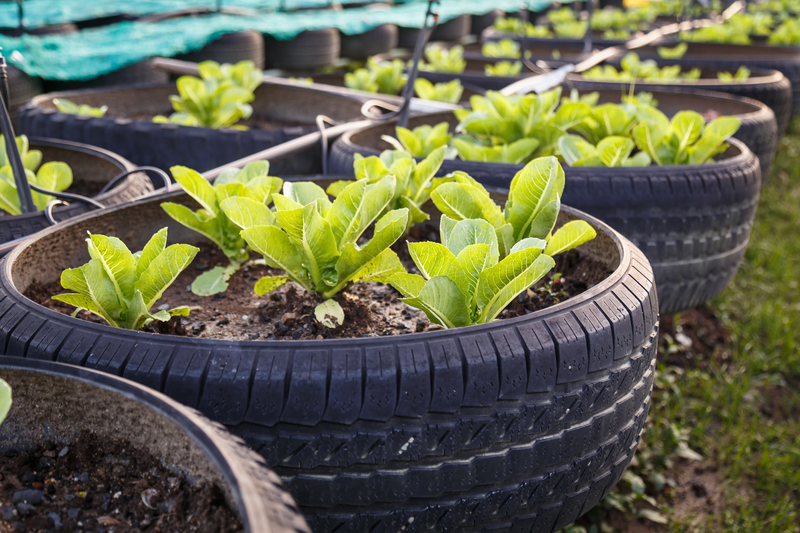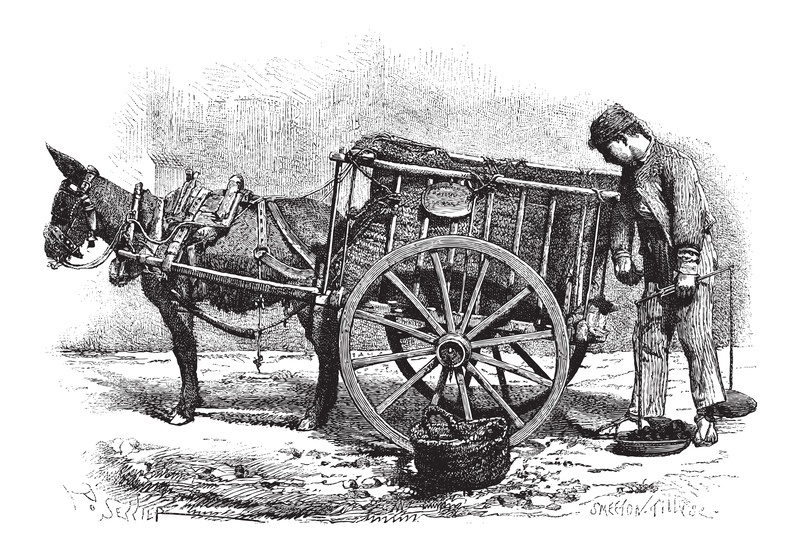Essential Practices for Lowering Household Waste
In our fast-paced, consumption-driven world, lowering household waste has become crucial for both environmental sustainability and personal well-being. Every discarded package, food scrap, or single-use item contributes to the immense pressure on our landfills and natural resources. Yet, with conscious choices and adoption of essential waste-reduction habits, each household can make a significant impact. This comprehensive guide explores practical, actionable strategies for reducing domestic waste, helping you live a greener, cleaner, and more resourceful life.

Understanding Household Waste: The Environmental Impact
Before delving into practical solutions, it's vital to understand the scope of the problem. On average, each person produces over 4 pounds of waste daily, with much of it ending up in landfills or incinerators. This waste not only squanders valuable resources but also releases harmful greenhouse gases like methane as it decomposes. Moreover, microplastics and toxic residues threaten water and soil health. Reducing household rubbish plays a pivotal role in combatting these environmental hazards.
Types of Household Waste
- Organic Waste: Food scraps, yard trimmings, and paper products that decompose naturally.
- Recyclables: Plastics, metals, glass, and paper suitable for recycling processes.
- Non-recyclables: Composite materials, certain plastics, and contaminated items that go to landfill.
- Hazardous Waste: Batteries, electronics, chemicals, paints requiring special disposal.
Understanding what we throw away is the first step to lower household trash and move closer to a zero-waste lifestyle.
Adopting the Three R's: Reduce, Reuse, Recycle
The foundational principle of waste reduction at home revolves around the three R's--Reduce, Reuse, and Recycle. Each offers unique benefits in minimizing our rubbish footprint.
1. Reduce
-
Buy Less, Buy Smart:
- Choose products with minimal packaging.
- Opt for high-quality, longer-lasting goods.
- Prepare shopping lists to avoid impulse purchases.
- Embrace Digital Alternatives: Switch to electronic statements, e-books, and digital receipts to cut down on paper clutter.
2. Reuse
- Repurpose Containers: Reuse jars, bottles, and boxes for storage or DIY projects.
- Repair Before Replacing: Fix broken items such as clothing, appliances, or electronics.
- Swap and Share: Participate in local swaps or community lending libraries for books, tools, and toys.
3. Recycle
- Know Your Local Rules: Learn what your municipality accepts for recycling to avoid contamination.
- Clean and Sort Properly: Rinse containers and keep recyclables separated as required.
- Compost Organics: Use scraps to nourish your soil instead of sending them to landfill.
By weaving these tactics into your daily routine, significant reduction of household waste is achievable and sustainable.
Actionable Strategies for Minimizing Household Waste
1. Reduce Food Waste with Smart Shopping and Storage
- Plan Meals: Create a weekly menu and buy only what you need.
- First-In, First-Out: Store new groceries behind older ones to use perishables before they expire.
- Preserve Surplus: Freeze, dry, or can excess produce and leftovers.
- Innovate with leftovers--turn last night's dinner into lunch or soup ingredients.
Fact: The EPA estimates that 25-30% of all food in America is thrown away. Cutting food waste is a leading step towards household waste management.
2. Switch to Reusable Products
- Reusable Bags: Keep cloth or sturdy tote bags in your car or at the door for shopping trips.
- Water Bottles: Invest in a durable stainless steel or glass bottle instead of single-use plastics.
- Beeswax Wraps and Food Containers: Replace plastic wrap with natural alternatives and use glass containers for leftovers.
- Rechargeable Batteries: Swap disposables for rechargeable models to lower electronic waste.
These small changes can dramatically lower dependence on disposable items and contribute to reducing household rubbish.
3. Composting: Transforming Organic Waste
- Backyard Composting: Start a compost bin for fruit, vegetables, coffee grounds, and yard clippings.
- Vermicomposting: Use worms for faster decomposition indoors or in small spaces.
- Bokashi Systems: Ferment kitchen waste including meats and dairies your traditional pile can't process.
Composting not only reduces landfill contributions but also creates rich soil for gardens and houseplants, nourishing your own green space.
4. Donate, Sell, or Upcycle Unwanted Items
- Offer gently-used clothes, furniture, or electronics to charities or thrift shops.
- Host or join garage sales and online marketplaces such as Facebook Marketplace or Craigslist.
- Get creative by upcycling: Turn old T-shirts into rags, jars into candle holders, or pallets into garden planters.
Rehoming possessions is a sustainable approach to household waste reduction and supports community sharing.
5. Buy in Bulk and Avoid Single-Use Packaging
- Select loose foods from bulk bins (using your own bags) for grains, nuts, and spices.
- Choose concentrated cleaning supplies and make your own in reusable bottles.
- Pick large-format packaging when possible--it often uses less material per use.
6. Maintain and Repair Household Goods
- Regularly service appliances and electronics to extend lifespan.
- Join repair cafes or online workshops to develop DIY repair skills.
- Praise the "fixer" mentality--mend clothes, fix leaky taps, and patch up furniture.
Waste Reduction Habits for the Whole Family
Engage Children in Sustainable Practices
- Teach kids about recycling symbols and what can be composted.
- Encourage creative reuse through crafts, science projects, or school initiatives.
- Make waste reduction a game--who can pack the greenest lunch or use the least disposable items?
Community Engagement and Local Resources
- Attend neighborhood cleanups or join local zero-waste groups.
- Support farmers markets and stores that endorse minimal or returnable packaging.
- Advocate for improved municipal recycling and composting programs.
Common Challenges and How to Overcome Them
Time and Convenience
Adopting a waste reduction lifestyle may initially seem time-consuming, but many practices--like meal planning and bulk buying--save time in the long run. Start with one habit at a time; once it's incorporated, add another.
Lack of Local Infrastructure
If your area lacks robust recycling or composting programs, contact local officials to request improvements or work with community groups to initiate change. You can also seek out drop-off locations for items not collected curbside.
Family or Roommate Buy-In
Communicate the shared benefits of lowering household waste, including cost savings, healthier lifestyles, and a cleaner environment. Involve everyone in making decisions and celebrate milestones together.
The Economic Benefits of Reducing Household Waste
Reducing household trash is not just an environmental necessity--it also saves money. Families who buy less packaged food, repair rather than replace, and cut down on disposables typically see a reduction in grocery and utility bills. Composting can decrease the need for store-bought fertilizers. Selling or donating items creates value while fostering a culture of reuse.
Innovative Tools and Apps for Waste Reduction
- Meal Planning Apps: Tools like Mealime/Cooklist to track pantry items and avoid over-purchasing.
- Recycling Guides: Use iRecycle or the app by your local waste authority to clarify what goes where.
- Giveaway Platforms: Apps such as Freecycle or Buy Nothing connect you to neighbors looking for unwanted items.

Building a Sustainable Mindset
Lasting change relies on a mindset shift--from a disposable culture to one of stewardship and creativity. Focus on progress, not perfection, and appreciate the cumulative effect of small steps. Share your journey online or in your community to inspire others.
Conclusion: Taking the First Step Toward Lower Household Waste
Ultimately, lowering household waste is a collective challenge packed with personal and societal benefits. By embracing the essential practices outlined above--reducing consumption, reusing products, recycling responsibly, composting, and engaging your family--you can make a real difference. Integrating these habits doesn't require radical change, only commitment, and creativity. Start today by picking one or two strategies, and soon, minimizing household waste will feel like second nature.
Remember: Every small action--every item repurposed, meal saved, or plastic bottle refused--adds up. Together, we can transform our homes, communities, and planet for the better. Let's make waste reduction a way of life!
```